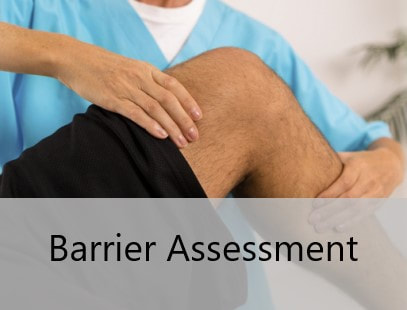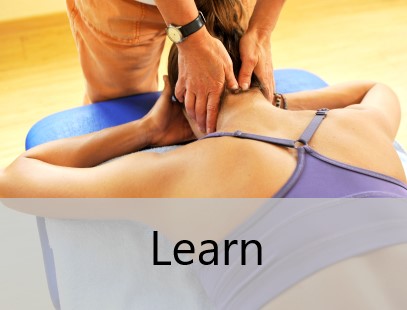The public, and healthcare professionals, are growing more aware of the importance of fascia to our health. Articles about fascial therapies are starting to appear in major news outlets. As manual therapists get exposure to new concepts in fascia research, a different way of understanding this tissue is emerging. In fascia, we now see not just a structural tissue, but also a vast, richly innervated sensory "organ". The sensing experience fascia gives us holds powerful sway over coordinated motion, posture, and joint stability, with influence on many other aspects of health.
Experiencing fascia-focused treatment can induce wonder. A patient can be amazed that gentle pressure can relieve pain where more aggressive methods failed. When treatment at the hand and forearm triggers sudden improvement in hip extension strength, or release of rib cage restriction gives dramatically improved forward bending, it challenges the mind to explain the results. At Fascia Sense Therapeutics, we are seeking to make this kind of experience much more common, and to train practitioners in powerful, repeatable methods that can raise their practices to a new level.
We support our students with thorough and careful training, extensive hands-on experience, and a depth of offerings to allow continued studies with like-minded providers. Our live training seminars give practitioners grounding in Residual Strain Therapy (RST), a method that makes finding and treating critical restrictions accurate and effective. Fascia is found throughout the body, and RST addresses much more than just muscular fascia. From superficial layers to the specific types of fascia around bones and organs, RST allows for truly "whole body" treatment. Feedback and outcomes from thousands of patients show powerful results, and our students praise the thoroughness and objective, repeatable nature of our methods. Fascia Sense therapies stand quite effectively on their own, and also powerfully assist other fascial therapy assessment and treatment styles. Please explore this site to learn more, and then join us at one of our upcoming events!
Experiencing fascia-focused treatment can induce wonder. A patient can be amazed that gentle pressure can relieve pain where more aggressive methods failed. When treatment at the hand and forearm triggers sudden improvement in hip extension strength, or release of rib cage restriction gives dramatically improved forward bending, it challenges the mind to explain the results. At Fascia Sense Therapeutics, we are seeking to make this kind of experience much more common, and to train practitioners in powerful, repeatable methods that can raise their practices to a new level.
We support our students with thorough and careful training, extensive hands-on experience, and a depth of offerings to allow continued studies with like-minded providers. Our live training seminars give practitioners grounding in Residual Strain Therapy (RST), a method that makes finding and treating critical restrictions accurate and effective. Fascia is found throughout the body, and RST addresses much more than just muscular fascia. From superficial layers to the specific types of fascia around bones and organs, RST allows for truly "whole body" treatment. Feedback and outcomes from thousands of patients show powerful results, and our students praise the thoroughness and objective, repeatable nature of our methods. Fascia Sense therapies stand quite effectively on their own, and also powerfully assist other fascial therapy assessment and treatment styles. Please explore this site to learn more, and then join us at one of our upcoming events!



